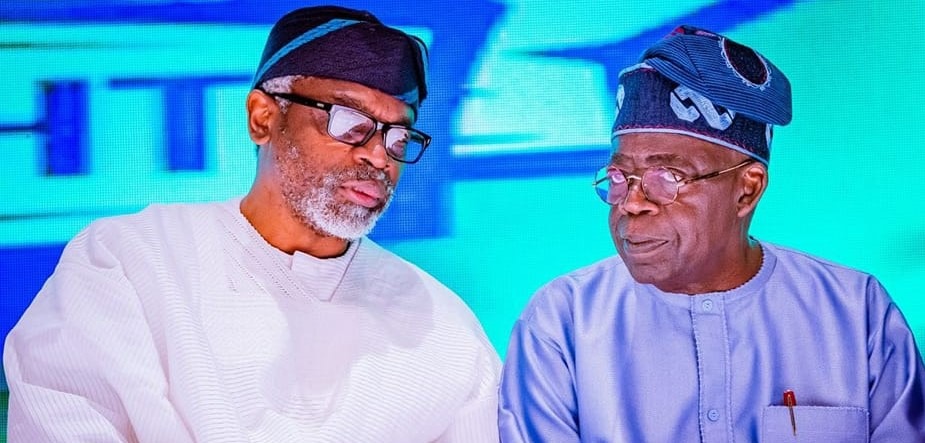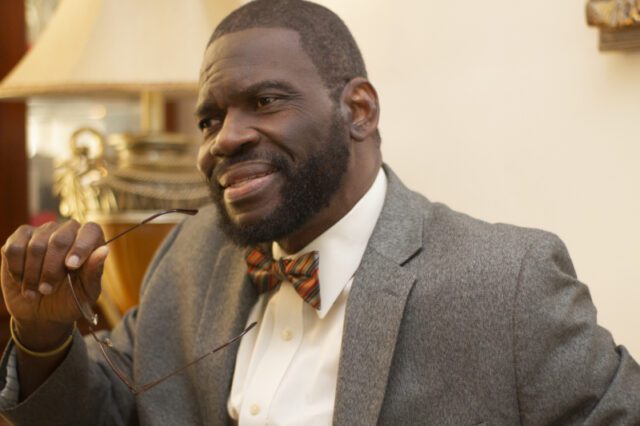Democracy & Governance
A Plea to President Tinubu, VP Shettima, and Chief of Staff Gbajabiamila to Temporarily Halt Promotions in Security Agencies to Address Nigeria’s Insecurity Crisis -By John Egbeazien Oshodi
The prevailing sentiment among ordinary Nigerians is that these agencies are taking both the people and the President for granted. The gap between officials’ actions and the dire security situation on the ground is deeply troubling. It’s clear that Nigeria is in a state of crisis, with citizens living in constant fear and insecurity becoming a daily reality.

President Tinubu, Vice President Kashim Shettima, and Chief of Staff Femi Gbajabiamila, urgently appeal to you to temporarily suspend promotions in the police, military, and other security agencies in light of Nigeria’s escalating insecurity crisis. It is disheartening for suffering Nigerians to witness news and images of promotions, as they may mistakenly perceive it as a reflection of commendable security work. However, in reality, these promotions are more of a ceremonial and psychologically misleading display of celebration. In these trying times, recent meetings with law enforcement and security chiefs have shed light on the severity of the security situation in Nigeria. Nevertheless, a troubling issue persists amidst this crisis – the ongoing promotions within these agencies. This matter has sparked widespread concern among Nigerians who live in fear and anxiety. Implore you to give this matter your immediate and utmost attention.
The disconnect between the actions of these officials and the dire situation on the ground is deeply concerning. Nigerians are living in constant fear, and the prevailing sense of insecurity demands immediate and effective solutions. The constant promotions, seemingly detached from the reality of the security challenges, only exacerbate the frustration and disillusionment felt by ordinary Nigerians.
For instance, the Police Service Commission has been actively promoting numerous officers, elevating commissioners of police to assistant inspectors general of police and deputy commissioners of police to higher ranks. A similar trend is observed within the Nigeria Security and Civil Defence Corps, and also within the Nigerian Army, where a substantial number of generals have been promoted. This raises concerns about the timing and necessity of such promotions during a period of heightened insecurity.
These promotions appear to be out of touch with the grim reality on the ground. The safety and well-being of Nigerians are increasingly at risk, with citizens left wondering why officials seem more focused on advancing their own careers through promotions rather than prioritizing the urgent security needs of the nation.
The prevailing sentiment among ordinary Nigerians is that these agencies are taking both the people and the President for granted. The gap between officials’ actions and the dire security situation on the ground is deeply troubling. It’s clear that Nigeria is in a state of crisis, with citizens living in constant fear and insecurity becoming a daily reality.
On a psychological level, these promotions may be viewed as self-serving when the entire nation is in turmoil. Nigerians are frustrated, and the prevailing sentiment is that officials are not taking their concerns seriously. The disconnect between promotions and the security challenges faced by the nation only exacerbates this frustration.
To address this growing discontent, it is crucial for leadership to prioritize the safety and well-being of the Nigerian people above all else. Temporarily halting senior promotions for a period of 6 to 12 months could send a powerful message and serve as a motivator for security agencies to redouble their efforts in combating kidnappings, terrorism, and abductions that have left the nation reeling.
In addition to halting promotions, a reevaluation of the promotion system is essential to ensure it aligns with the country’s current security needs. Promotions should be linked to tangible improvements in the security situation, not just a routine process.
Consider the consequences of these promotions in the face of escalating insecurity. It is imperative to prioritize the safety and well-being of Nigerians above all else. The current state of affairs demands a holistic and effective approach to address the security challenges plaguing the nation.
Nigerians are yearning for decisive action to restore security, combat corruption, and foster economic growth. It’s a critical juncture that requires a genuine commitment to the betterment of Nigeria and its people. The police and security leadership should use common sense and recognize that in times like this, ceremonial senior promotions are self-serving when the whole nation is in turmoil. Notably, the Police Service Commission has been promoting many officers, elevating commissioners of police to assistant inspectors general of police, and deputy commissioners of police to higher ranks. Similarly, the Nigerian Army has seen the promotion of a significant number of generals.
This approach emphasizes the need to prioritize making Nigeria safer over swiftly advancing careers through promotions, particularly as the nation faces mounting security challenges. The recent promotions in various security agencies must be reconsidered, taking into account the current insecurity and the urgent need for concrete improvements in national security.
In a time when security concerns are at a critical level in Nigeria, people are seeking a sense of safety and stability. This approach aligns with the idea that basic human needs, like safety and security, must be met before we can focus on higher-level needs, such as recognition or career advancement.
While these promotions may be well-intentioned, they risk worsening the feelings of fear and uncertainty that many Nigerians are experiencing. Citizens are looking to their leaders for solutions and reassurance, and delaying promotions in favor of addressing the security crisis is not only practical but also considerate of the well-being of the people.
Furthermore, temporarily suspending senior promotions for 6 to 12 months can deliver a powerful message to our uniformed personnel. It can serve as a source of motivation for them to adopt a more assertive approach in tackling kidnappers, terrorists, and abductors who are wreaking havoc and demanding exorbitant ransoms. The safety and well-being of the Nigerian people must remain the paramount concern, and this action aligns with the fundamental principles and urgent needs of our nation. The continuous stream of news reports detailing the activities of these kidnappers, bandits, and terrorists operating from remote areas such as bushes and forests raises pertinent questions. What impedes the police and security officers, from top leadership to the lowest-ranking personnel, from venturing into these terrains and engaging in direct confrontations? Instead of witnessing a proactive response, all we observe are victims being released, recounting their ordeals in the wilderness alongside other captives, paying ransoms, and, tragically, some losing their lives with their bodies left by the roadside. In the midst of such suffering and tragedy, the conspicuous focus on promotions seems utterly misplaced and perplexing.
Nigeria is currently grappling with a severe security crisis, as terrorists have wreaked havoc across the nation. The safety of highways has deteriorated, with travelers facing the constant threat of kidnappings, ransom demands, and violence. Even after paying ransoms, some victims are tragically killed. Additionally, several communities have been displaced, and farmers are unable to access their fields. This insecurity has extended to military and police installations, posing a significant challenge to national security. In recent developments, terrorists have even targeted the nation’s capital, Abuja, invading residential areas in broad daylight to kidnap, kill, and maim.
As Nigerians express their frustration and demand accountability, it is evident that the nation is at a critical juncture. The security crisis, exacerbated by corruption, has left citizens feeling vulnerable and disillusioned. Many are calling for swift and decisive action to address both corruption and insecurity, emphasizing that rhetoric alone will not suffice.
Nigeria’s leaders face mounting pressure to address the root causes of insecurity and corruption. The nation’s future stability and prosperity depend on their ability to take meaningful steps toward combating these deeply entrenched issues.

Professor John Egbeazien Oshodi, born in Uromi, Edo State, Nigeria, is an American-based police and prison scientist, forensic psychologist, and legal psychologist. He’s a government advisor on forensic-clinical psychological services in the USA and the founder of the Dr. John Egbeazien Oshodi Foundation for Psychological Health. With a significant role in introducing forensic psychology to Nigeria through N.U.C. and Nasarawa State University, he’s also a former Secretary-General of the Nigeria Psychological Association. He’s taught at esteemed institutions like Florida Memorial University, Florida International University, Nova Southeastern University, and more, and is currently an online faculty member at Weldios University, Nexus International University, and Walden University. John.Oshodi@mail.waldenu.edu




















